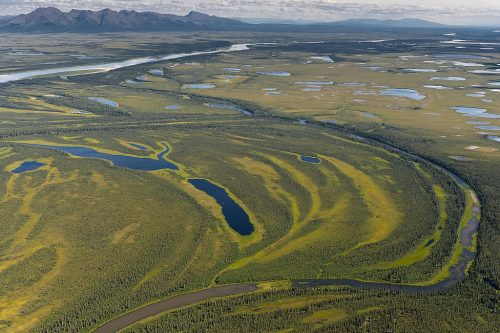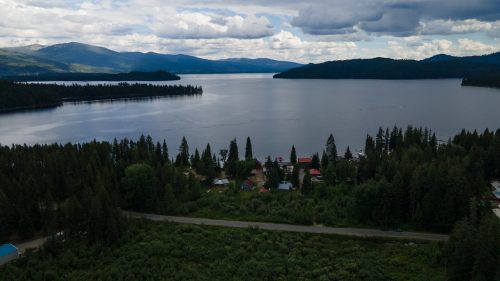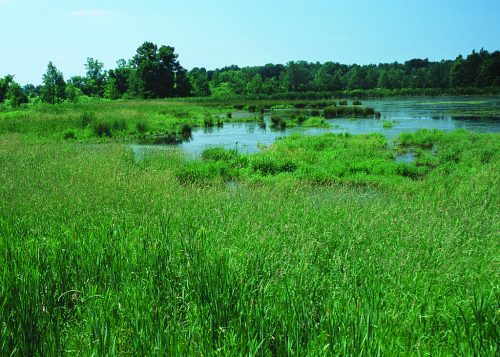On August 29, the US Environmental Protection Agency (EPA) announced a huge change in the rules designed to protect America’s wetlands. The EPA was forced to change the rules because of a Supreme Court decision that took away protection from most wetlands.
Wetlands are areas of land that are covered with water for at least part of the time. They include things like swamps, bogs, and marshes. Wetlands are very important for many plants and animals. They also help protect the land from floods, and clean and filter the water running through them.
In 1972, the US passed the Clean Water Act. This law was designed to protect water in the US from pollution. Under the Clean Water Act, the US government had the right to protect not just large rivers and lakes, but also most wetlands.

(Source: National Park Service, Alaska Region [Public domain], via Wikimedia Commons.)
That changed in May of this year, as the result of a US Supreme Court decision. Chantell Sackett and Michael Sackett – a couple from Idaho – wanted to put rocks and dirt into a part of their land, which is near a lake.
The government told them they couldn’t do that without permission, because the wetland area they wanted to fill in was protected. The Sacketts disagreed, and the case went to court.
The Supreme Court decided that the wetland wasn’t protected by the Clean Water Act, and that the government had no right to stop the Sacketts. The decision upset many people who are worried about protecting the country’s wetlands.

(Source: Pacific Legal Foundation, via Flickr.com.)
The court said that the government could only protect wetlands that were next to permanent bodies of water, such as rivers, lakes, and oceans, or were clearly connected to these bodies of water above ground.
The new EPA rules announced last Tuesday are designed to make sure the government is following the court’s decision. Michael Regan, who leads the EPA, said he was “disappointed by the Supreme Court’s decision”, but that he had to follow the court’s guidelines.
Normally, when the EPA changes its rules, there is a lot of discussion, and citizens are allowed to give their opinions before new rules are passed. In this case, though, the EPA was forced to make sure its rules followed the changes made by the Supreme Court. The new rules take effect right away.

(Source: Fred Gasper/USDA, via WikimediaCommons.org.)
The new rules mark a huge change from the way the Clean Water Act has worked for the last fifty years. It takes away government protection for roughly 63% of the wetlands in the US. The new rules will make it much harder for the EPA to protect wetlands.
The rules will also make it much easier for people and companies to pollute wetlands, or even destroy them. And because wetlands play an important part in the natural water cycle, the changes are likely to affect other parts of America’s waters.
Because the Supreme Court is the highest court in the US, the only way the rules could be changed in the future is if the US Congress decides to rewrite the Clean Water Act to make sure that wetlands are protected.
